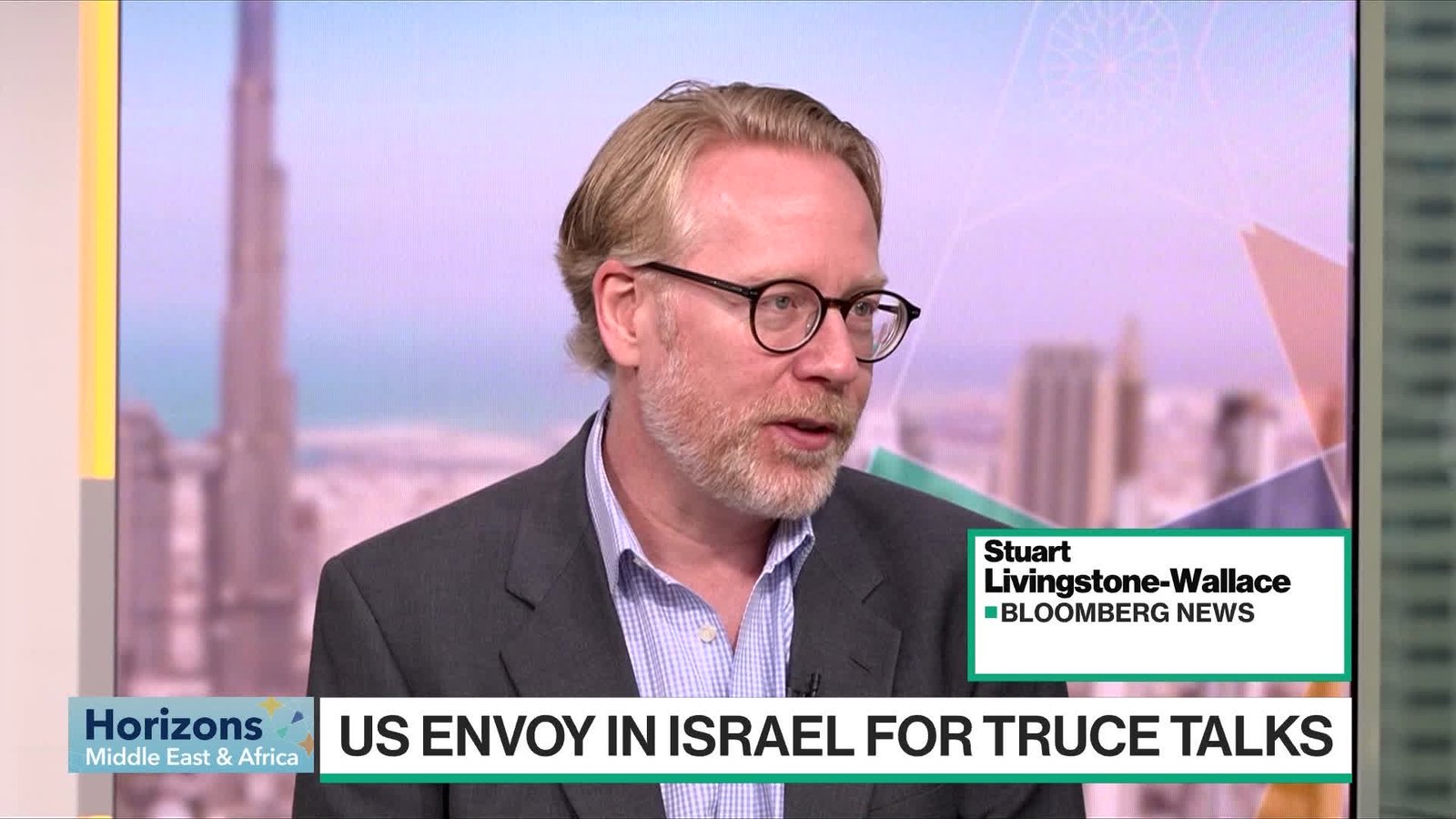- 00:00A senior White House envoy has traveled to Tel Aviv from Beirut in a bid to clinch a cease fire deal in the fighting between Israel and Hezbollah. After meeting with Lebanese officials this week, Amos Hochstein struck an optimistic tone, saying he’d managed to bridge some of the gaps between the two sides. For more on this. Bloomberg’s Stewart Wallace joins us around the desk. So, I mean, we’ve been tracking almost this trip to the region the last couple of days. He seems to be still quite optimistic. And yesterday we were talking about the fact that he even is engaging in a trip to Israel is perhaps a positive sign that he has enough on the table to present to the Israeli prime minister. Yeah, I think that is a fair reading of the situation. I think there’s also optimism within Beirut, as we we saw this morning on social media, as you pointed out. But, I mean, I think, look, the reality on the ground is that Israel is in a position of strength here. And you have a prime minister in Israel who I suspect is going to be making more and more demands about what this deal might look like. And it’s going to get close to those red lines that where it’s going to become unacceptable. So really will watch over the next 24 to 48 hours to see exactly what those demands are. If he continues to insist on being able to act unilaterally in southern Lebanon in the future, that’s going to be a problem. Yes. So the thing is, you know, when people talk about Israel’s war objectives within the Gaza Strip and then Israel’s war objectives in Lebanon, within the Gaza Strip, it was to fully neutralize and demilitarize Hamas in Lebanon. It is to restore security to their northern border and to ensure that those strikes from Hezbollah aren’t going to continue. But what they have been doing the last couple of weeks suggests that they actually do want to fully neutralize Hezbollah. The the air strikes, the airstrikes are continuing. They are as targeted as they’re trying to be. But going after specific name specific officials are very closely associated to Hezbollah. What guarantees are there that those types of targeted, so to speak, attacks will stop even if the ceasefire deal is passed? I think very unlikely because, again, Israel’s in this position of strength. And I think it goes beyond this. You know, a little later this morning, we’ll be putting out a piece that will basically say part of the objective here is to give it operational flexibility. And by that, we mean it can go after Iran if it wants to. So in the past, it’s always been quite wary about going after the UN, partly because of Iran’s arsenal and because it is quite aggressive. But actually, Hezbollah has been a big, big factor in restraining Israel in terms of acting on Iran directly. So the more they degrade Hezbollah, the more the wipe out the leadership. And they play out pretty much already that most of the senior leadership is gone, then that gives Israel the confidence to be able to take on Iran. And what that might look like over the next six months to a year is something we’ll watch. But it definitely has changed the balance of power in the region. So how does that factor in? I don’t know if this is somehow coincidental, that IAEA report that came out suggesting that Iran will are open to stopping their enrichment program, nuclear enrichment program, is that political decision on their side? Yeah, it certainly looks that way. I mean, the context there is that they already have rather large stockpiles and the stockpiles did increase since the last report. So I don’t think it’s one of those Ghadafi moments where they’re sort of giving up on nuclear ambitions, that’s for sure. And again, you know, officially they have continued to say we’re not after a nuclear weapon. I’m not sure a 60% enrichment anyone really believes them anymore. So they’re keeping that option on the table. And again, it’s something that’ll develop over the next several months. It does look like they’re sort of gently edging towards a position where they can get some sort of stability back in the picture. Because the one thing you can say about the regime in Tehran is they are great survivors and that ultimately what they’re interested in is survival, not necessarily winning individual skirmishes.
Stream Schedule:
U.S. BTV+
No schedule data available.
